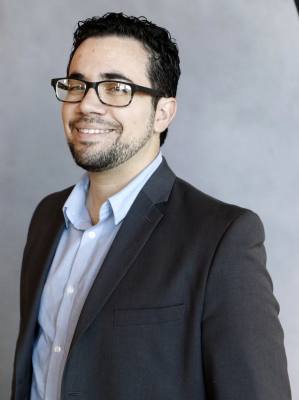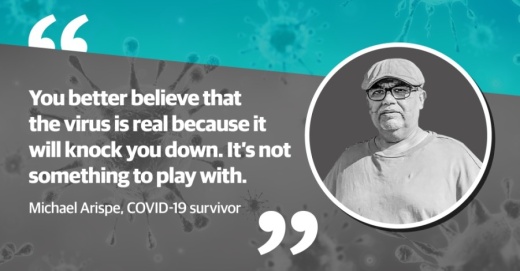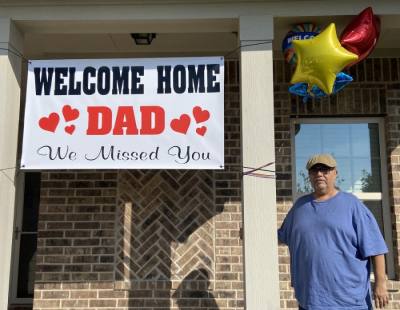His condition worsened over the next four days, and he developed a fever and chills. He went to an urgent care, where, after checking his blood pressure, staff said he might have COVID-19. Arispe said he was loaded into an ambulance and taken to St. David’s South Austin Medical Center for further testing. Arriving at the hospital that night is the last thing Arispe remembers until waking up 24 days later.
“The nurse said, ‘We’re going to treat you like you have the virus. We’re going to swab you, and the good thing is we have plenty of ventilators, so you don’t have to worry,’” Arispe told Community Impact Newspaper on June 12. “That’s the last thing I remember.”
Monica Arispe—Michael’s wife of over 30 years—was not able to see him in person for the 58 days after she dropped him off for his urgent care appointment March 22 due to safety restrictions related to COVID-19.Monica said the doctors and nurses at St. David’s were extremely helpful in keeping her informed during the stay. She said she had a routine calling St. David’s for updates six to seven times a day as Arispe slowly recovered from COVID-19. Each day she went through every emotion: from fear and sadness when Arispe’s blood pressure would drop, to joy and optimism when vitals would show any improvements.
“It was hard, and you realized how easy it is for your loved one to be taken away,” she said. “I think people need to wake up and realize that [COVID-19] is for real. We’re living proof that it can happen to anybody.”
When Arispe began returning to normal and regaining his memory, the two began to video call each other using Facetime to stay together while he remained in the hospital.
“I’m blessed; the staff said I’m a miracle patient, and they didn’t think I was going to make it, but I did,” Michael said. “You better believe that the virus is real because it will knock you down. It’s not something to play with.” Although his COVID-19 symptoms diminished, other conditions related to his extended hospital stay remained. He said COVID-19 affected his nervous system, which caused a burning sensation in his feet. Also, during his hospitalization he developed a boil on his thigh which got infected. COVID-19 prevented surgeons from operating because the risk of surgery while showing low vitals could have been deadly, he said.
“They’re learning this virus affects people in different ways,” Arispe said. “I know there are some individuals saying their lungs are on fire. My lungs never felt like that, but I had other things as a result of the virus.”
Once cleared of COVID-19 and after surgery on his thigh, Arispe was transferred to two different hospitals where he stayed for a month for further rehabilitation efforts. Because of the surgery, an extended period of inactivity and weakness in his hands and legs, he said he had to learn how to walk again. Arispe returned home May 20 and greeted his family in person for the first time in months. He said one of his neighbors was shocked to learn he had not been home because of COVID-19, thinking the virus was not real until speaking with Arispe. “We don’t hardly go out anymore, but if we do we get totally upset when we see individuals without a mask on, like they don’t believe it’s happening,” he said.
Monica said since Arispe’s return home he has continued to improve, but that it’s a long road to a full recovery. COVID-19 has been something that the family has had to deal with daily and has impacted their lives greatly, she said.
“I’ve been asked, ‘How can it happen to him; he’s such a nice person?’ People need to realize this virus doesn’t care what color you are; it doesn’t care about how much money you have, what your social status is or what you do. If it’s going to affect you, it will,” she said.






